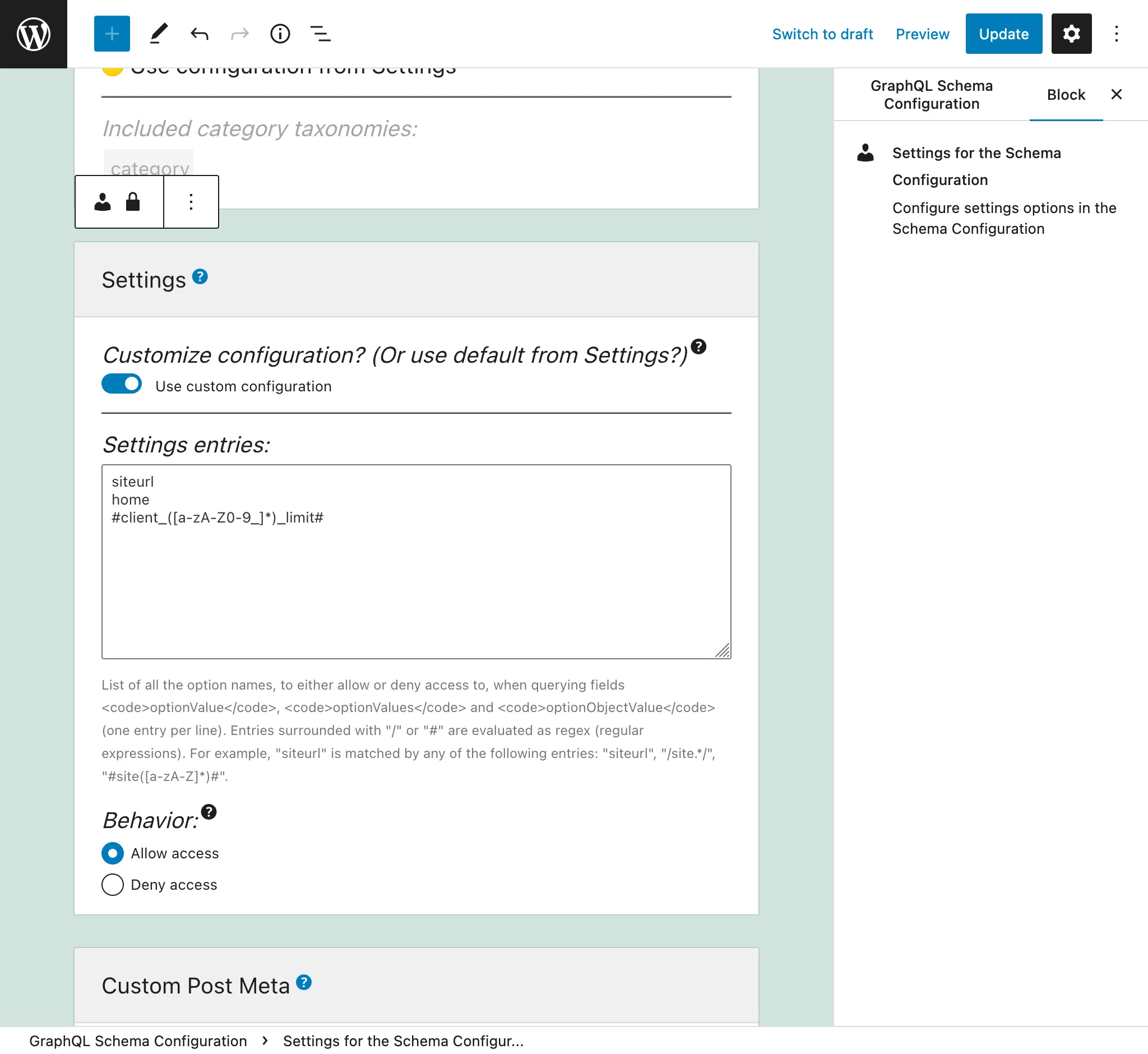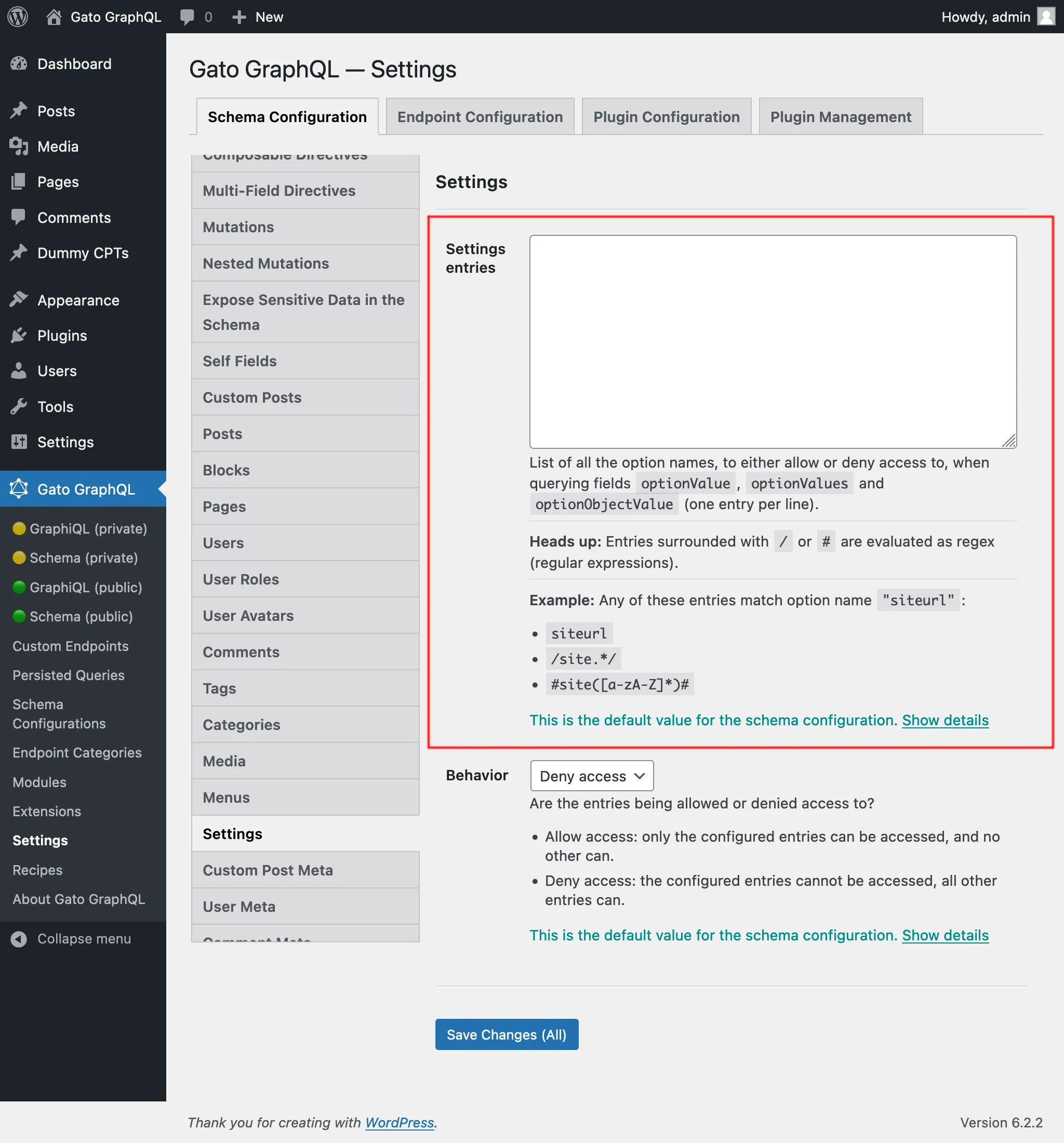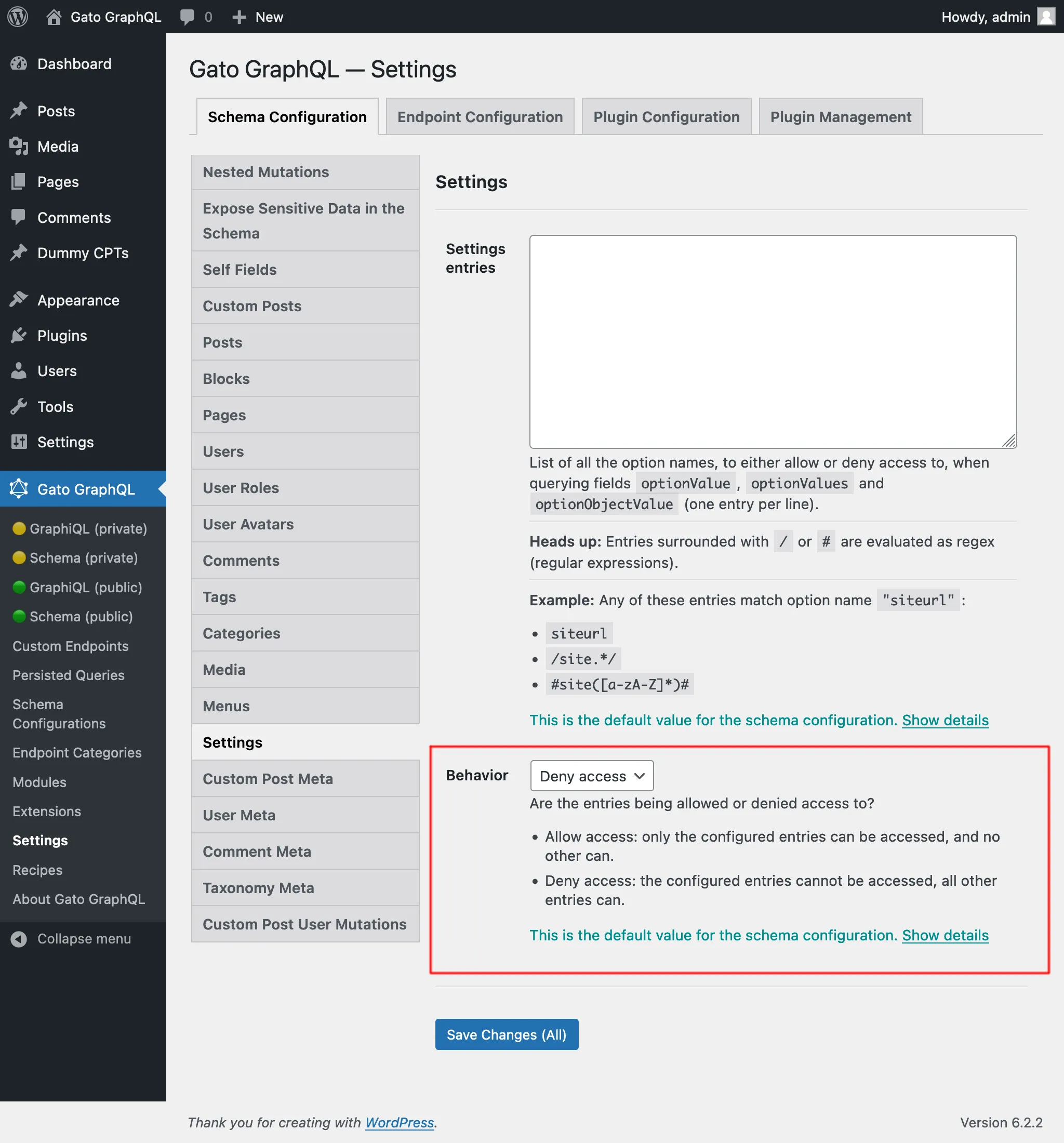Defining the Setting's allowed entries
With the Schema Settings module, you can retrieve the settings from the site (stored in table wp_options), by querying fields optionValue, optionValues and optionObjectValue.
These fields have a different signature:
optionValue: AnyBuiltInScalaroptionValues: [AnyBuiltInScalar]optionObjectValue: JSONObject
For instance, this query retrieves the site's URL:
{
homeURL: optionValue(name: "home")
}For security reasons, which options can be queried must be explicitly configured.
Settings response
When executing any "optionValue" field, if access to the option name is not allowed in the Settings, the query returns an error.
For instance, executing this query:
{
optionValue(name: "nonExistentOption")
}Returns:
{
"errors": [
{
"message": "There is no option with name 'nonExistentOption'",
"extensions": {
"type": "Root",
"id": "root",
"field": "optionValue(name:\"nonExistentOption\")"
}
}
],
"data": {
"option": null
}
}Otherwise, the response is the value for the settings with the specified name.
Configuring the allowed options
We must configure the list of option names that can be queried.
Each entry can either be:
- A regex (regular expression), if it's surrounded by
/or#, or - The full option name, otherwise
For instance, any of these entries match meta key "siteurl":
siteurl/site.*/#site([a-zA-Z]*)#
There are 2 places where this configuration can take place, in order of priority:
- Custom: In the corresponding Schema Configuration
- General: In the Settings page
In the Schema Configuration applied to the endpoint, select option "Use custom configuration" and then input the desired entries:

Otherwise, the entries defined in the "Settings" tab from the Settings will be used:

There are 2 behaviors, "Allow access" and "Deny access":
- Allow access: only the configured entries can be accessed, and no other can
- Deny access: the configured entries cannot be accessed, all other entries can

Default options
When the plugin is installed, the following options are pre-defined to be accessible:
"siteurl""home""blogname""blogdescription""WPLANG""posts_per_page""date_format""time_format""blog_charset"
